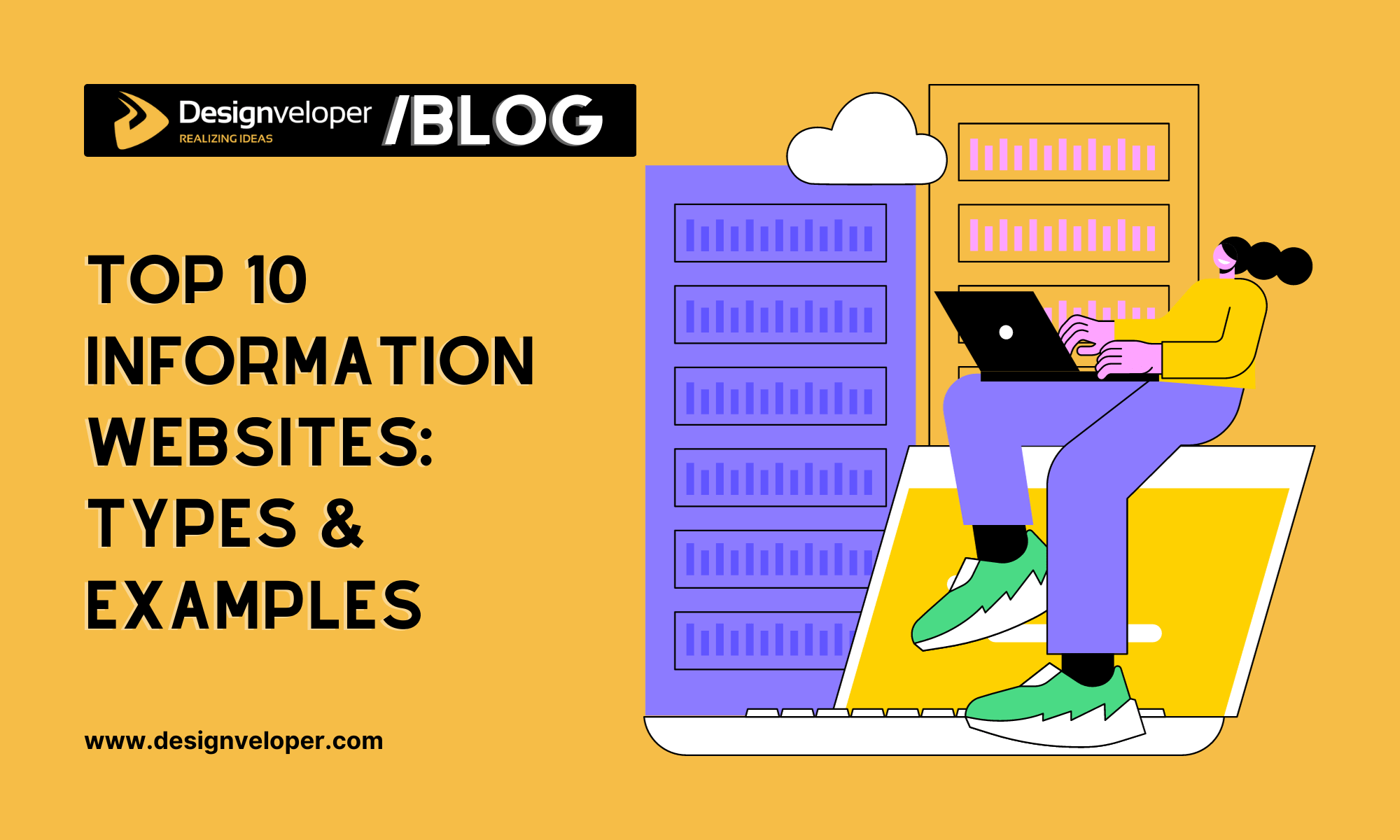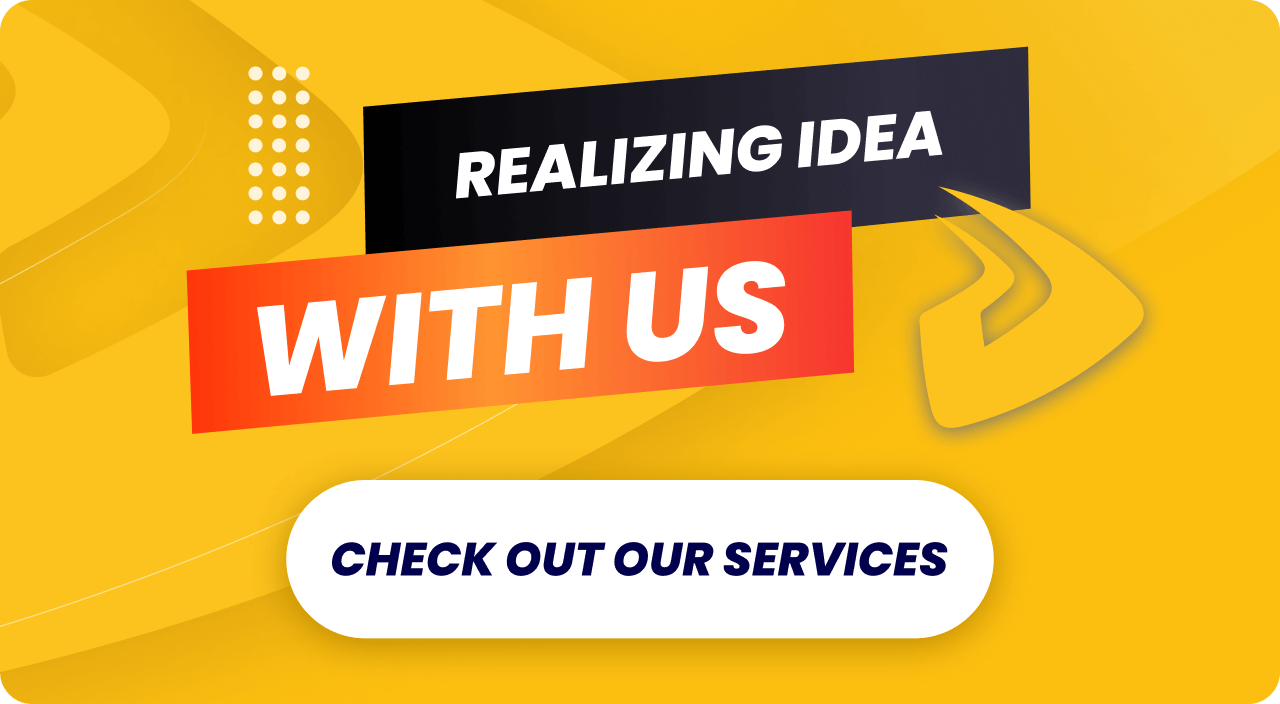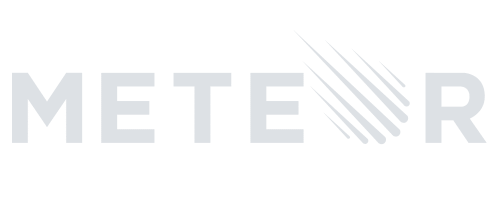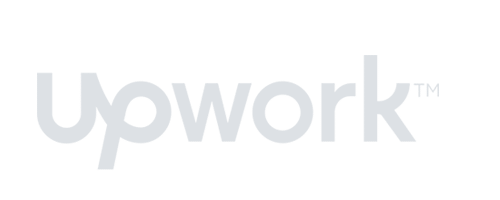Information websites are digital hubs that provide reliable information and knowledge on diverse topics. Whether you’re new to the concept or seeking fresh inspiration for your information websites, this article has something for you.
Diving into this guide, you’ll learn about the importance of these websites to users, debunk popular myths about them, and discover the top 10 types of information websites with compelling examples.
Get ready to explore? Let’s embark on this informative journey together!
The Importance of Information Websites
Information websites, like blogs, news portals, knowledge bases, and more, play a pivotal role in shaping the online landscape. Their importance extends far beyond mere data dissemination. These websites serve as helpful tools for users seeking factual and trustworthy information across various topics. Here are some main reasons:
- Problem Solving and Knowledge Retrieval: 77% of customers have a more positive view of a company if it provides self-service options (e.g., knowledge bases or blogs) that support customers in resolving their problems on their own. Therefore, it is crucial to create reliable information platforms that can help your target audience learn about their problems through blog articles, FAQs, guides, and manuals available.
- Reliable and Quality Content: Trustworthy news and information are vital in this digital era, as the 2023 Digital News Report revealed that more than half of the people are worried about distinguishing real from fake news. Moreover, the demand for accessing higher-quality content is also the main reason why people around the world subscribe to online news. These findings indicate the importance of providing credible information on online platforms.
Common Misconceptions About Information Websites
When it comes to information websites, there are several misconceptions that often cloud people’s understanding:
- Many believe that building and maintaining these websites is easy. However, the truth is that they require a lot of time, effort, and expertise to develop. There’s also a need to comply with such standards as SEO or security to engage the right audience.
- Another common belief is that information websites are always accurate and trustworthy. In reality, these platforms may contain errors, biases, or outdated information. Also, the content can be influenced by the sources, authors, or editors, thus misleading users.
- People may assume that information websites are all the same. This is far from the truth. Information websites vary greatly in their purposes, audiences, contents, and formats. They also offer features like search functions, ratings, feedback, and suggestions. Users should understand the purpose and scope of the website they are using and choose the most suitable one for their needs.
- If you think all online hubs providing information are considered “information websites”, you’re wrong. While platforms like Facebook and Reddit facilitate information sharing, they differ from the information websites we mention here. The latter adheres to stringent standards, providing verified information, while content on social platforms is subjective and unreviewed. So, when navigating social media platforms, users must filter information with a clear mind and seek out reliable topics endorsed by experts.
Whether web developers or business owners seeking ideas for information websites, understanding these misconceptions can help you develop the right platforms where users access reliable information on their demands.
Best Types of Information Websites With Stunning Examples
What are the best types of information websites today? This section gives you a detailed answer with amazing examples.
Blogs
Blogs are websites that provide personal or professional opinions, insights, stories, and tips on various topics and niches. They’re crafted by individuals or organizations, each with a unique voice and perspective to offer value, and to share expertise and experiences.
For business owners, blogs aren’t just virtual diaries – they’re vibrant tools to attract the right audience. Why is that so? According to the Customer Service report of Hubspot, customer examples/case studies (33%) and educational content (32%) are two potential buckets of information that significantly shape how customers perceive your business.
So if you’re looking for effective ways to attract the right audience, blogs are a good start. Through blogs, you can equip your customers with informative content to solve their pain points and showcase how your offerings help other customers address the same problems through real-world success stories.
Below are some best examples of blog websites:
Designveloper’s Blog
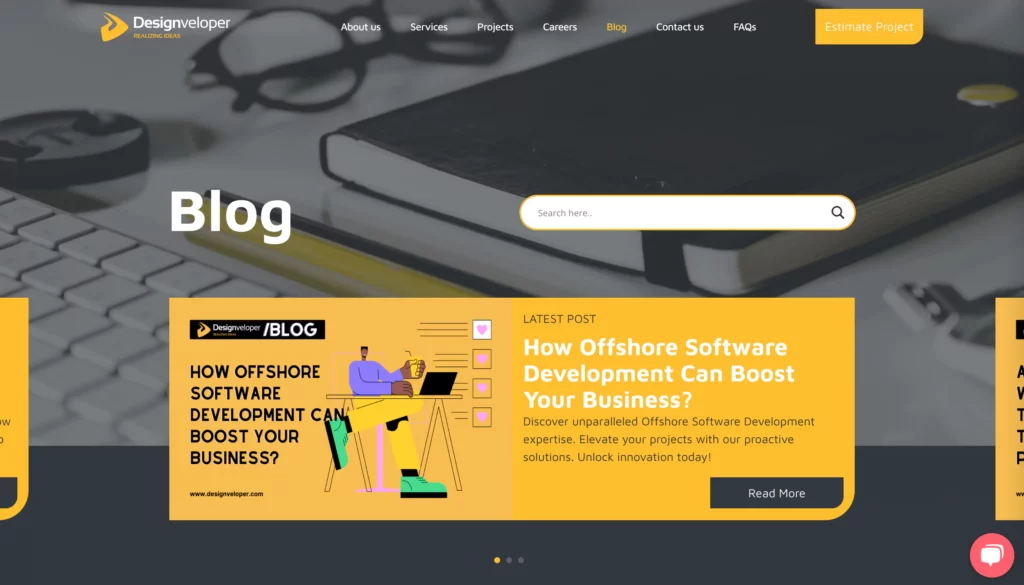
Our blog is like a treasure map for those seeking fundamental information about web, mobile application development and design, as well as VOIP systems. We guide you through the labyrinth of cutting-edge tech, offering in-depth insights and expertise to help you navigate in the tech industry. Moreover, the blog serves as a dynamic tech radar, consistently updated with the freshest trends in web development and design, ensuring you’re always in the know.
Zen Habits
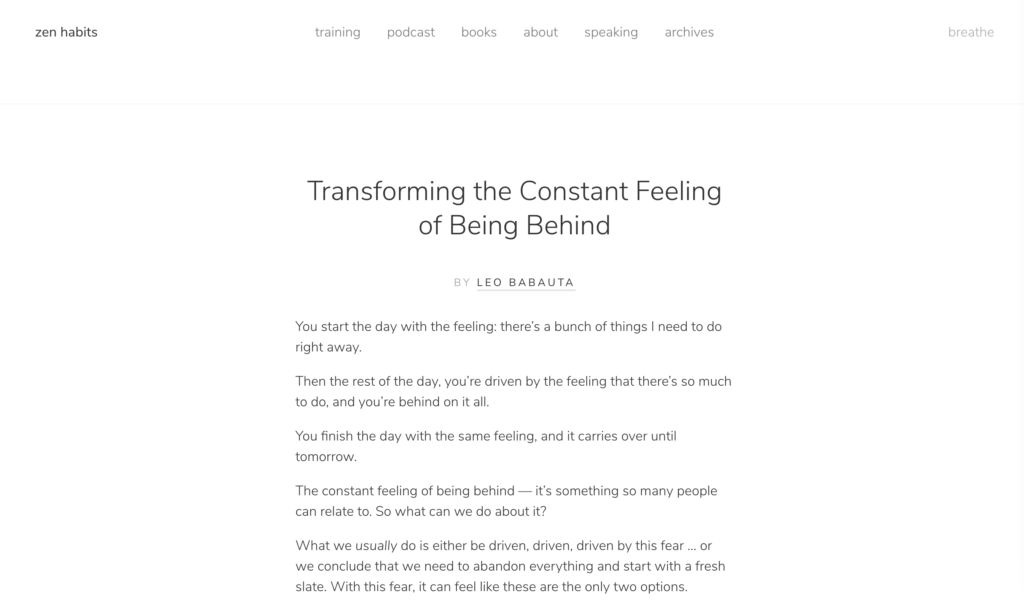
Curated by Leo Babauta, Zen Habits is a personal blog that offers a tranquil escape for those seeking balance. With wisdom on mindfulness, productivity, and simple living, it guides you to declutter your minds and lives.
News Portals
As the name suggests, news portals are websites that provide timely and factual information on current events, politics, sports, entertainment, and other topics of interest. They often have sections for breaking news, headlines, opinions, features, and multimedia.
Giants like the BBC or The New York Times have their own army of journalists covering news as it happens. The news and reports published by these websites undergo a review process to ensure accuracy and credibility. Others, like Yahoo News or Drudge Report, are like busy bees, collecting nectar from various sources – newspapers, magazines, radio, TV, or online media, without having their own media team.
While most news is free, some portals like Bloomberg only offer limited free articles per month and require your subscription for access to all content therein.
Let’s look at two stunning examples of news websites as below:
The New York Times
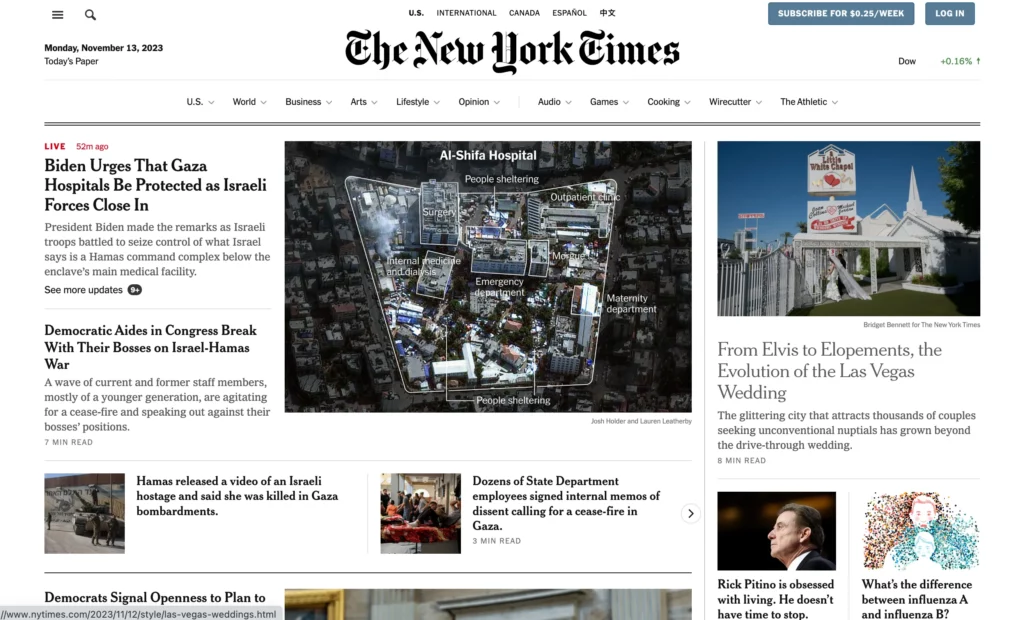
The New York Times (NYT) stands tall in news, delivering a rich tapestry of current events, politics, sports, and entertainment. The information provided by NYT is useful to visitors as it keeps them informed about the latest happenings around the world. One of its outstanding features is the Book Review section where you can find insightful reviews, essays, and best sellers.
Bloomberg

As a global info powerhouse, Bloomberg provides current affairs, insightful analysis, events, and trends that shape the global business and financial world. It’s also a valuable resource for those looking for a comprehensive, trustworthy perspective on personal finance issues (e.g., investment or savings & retirement).
Knowledge Bases
Knowledge bases are websites that store and organize information about a specific product, service, topic, or field. They’re like a 24/7 customer service rep, always ready to answer your questions. So knowledge bases are common for product support, customer service, general education, and documentation.
Why should you care about knowledge bases? Well, 63% of consumers start their quest for answers on a company’s online resources before reaching out to a human rep. To fulfill this desire and showcase your expertise or experience in certain domains, there’s a need for your business to build a comprehensive knowledge base.
Knowledge bases come into two categories:
- Human-readable: These are like online libraries filled with documents created by humans. Think of Hubspot Knowledge Base or Slack Help Center as the best examples.
- Machine-readable: These are like automated librarians, collecting and extracting information from various sources. Some stunning examples include DBpedia or WordNet.
Here are two standout knowledge bases that can inspire you:
HubSpot Knowledge Base
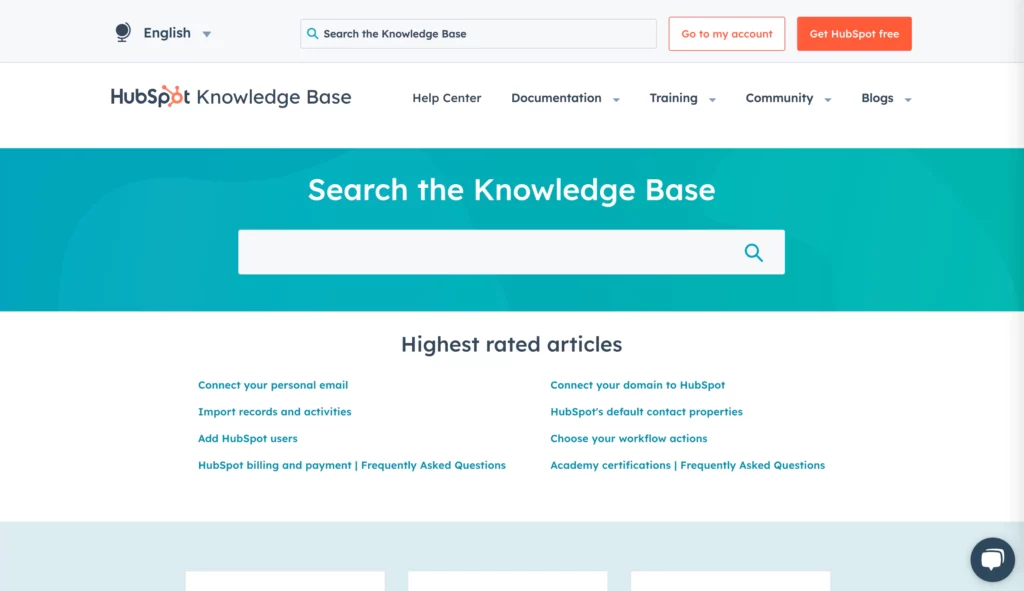
This human-readable knowledge base delivers information about HubSpot’s products, services, and topics. It helps customers find answers to their questions and solve problems on their own.
DBpedia
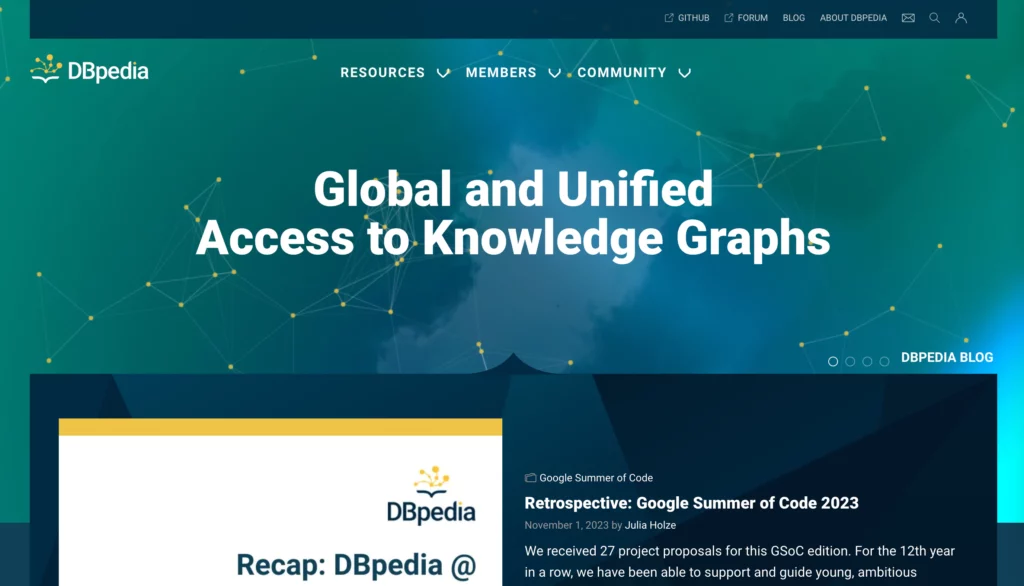
This machine-readable knowledge base extracts structured information from Wikipedia and makes it available on the web. It uses SPARQL, a semantic web language, to let users ask about factual information across topics.
Encyclopedias
Encyclopedia websites are websites that provide general and comprehensive information on a wide range of subjects, like history or science. Their articles are typically crafted by specialists in their respective fields and are subjected to meticulous scrutiny by a team of professional editors. For this reason, information provided by encyclopedia websites is reliable and authoritative for research or learning purposes. These websites also include an alphabetical index of entries for easy search and may have cross-references, illustrations, maps, or other features.
You want to look for the best encyclopedias? Let’s take a look:
Encyclopedia Britannica
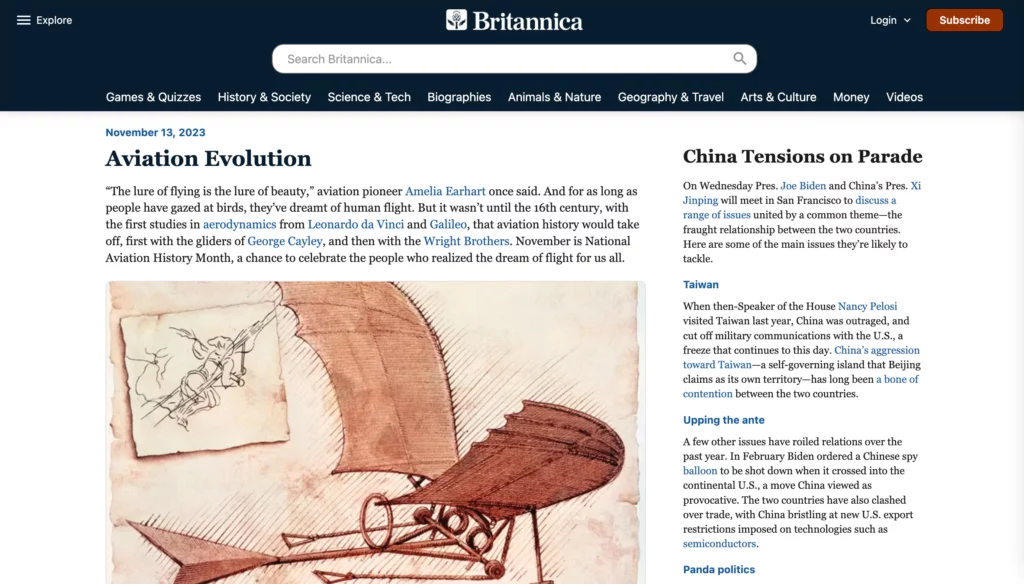
Since its first introduction in the 18th century, the Encyclopedia Britannica has been a treasure trove of information online. It’s like a gold mine for curious minds, offering a vast array of topics from science to history. Its accuracy and in-depth information make it a trusted friend for students, researchers, or anyone seeking factual knowledge.
Stanford Encyclopedia of Philosophy (SEP)
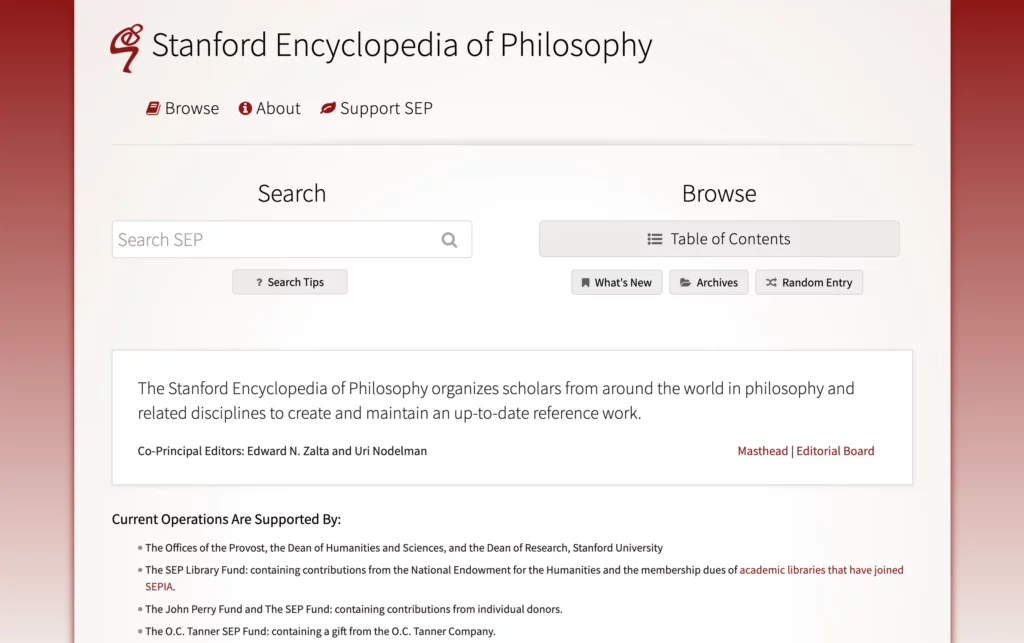
Unlike Britannica which provides diverse topics, the SEP only delivers authoritative and comprehensive information about philosophy. Curated by Stanford University, it allows free access and has a competent editorial committee to select specialist authors and entries, thereby ensuring the accuracy and depth of information provided.
Wiki Websites
Wiki websites are platforms that empower users to collaboratively contribute to and modify content on a plethora of subjects. These websites often have a history function that shows the changes made by different users and a discussion function that allows users to comment or suggest improvements.
The two renowned candidates in this type of information website can count:
Wikipedia
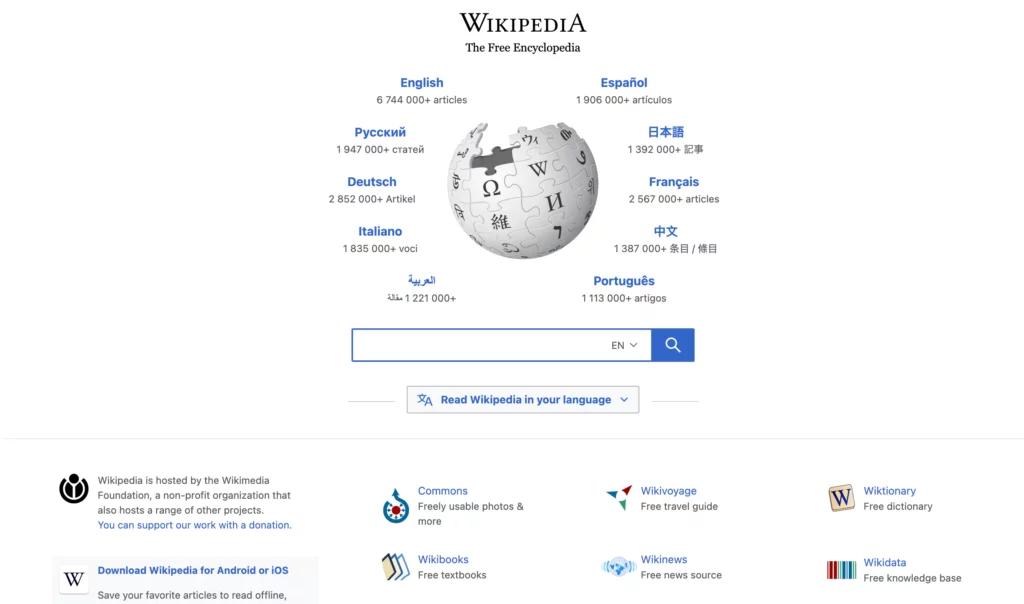
Considered the largest online library, Wikipedia covers almost all fields (e.g., arts or geography), providing factual information and references for learning or curiousity.
Note: Wikipedia is also known as “a free online encyclopedia”. But unlike traditional encyclopedias, Wikipedia allows anyone to write and audit, thus making the information inaccurate or biased sometimes. So there’s a need to cross-verify information if you want facts or data for research or learning purposes.
WikiHow
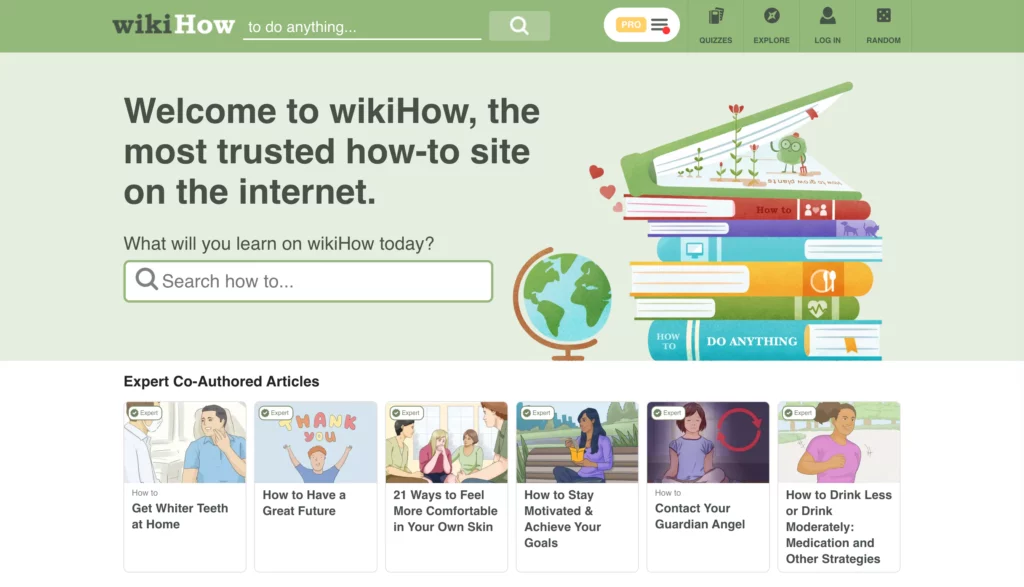
WikiHow serves as a comprehensive resource of how-tos, offering solutions to a wide range of challenges in life such as personal care or tech.
Educational Websites
Educational hubs are websites that provide learning materials, resources, or courses for students, teachers, or learners of any age or level. These platforms may include text, audio, video, quizzes, games, or other interactive features.
When it comes to educational websites, you may think of the two bright candidates:
TED-Ed
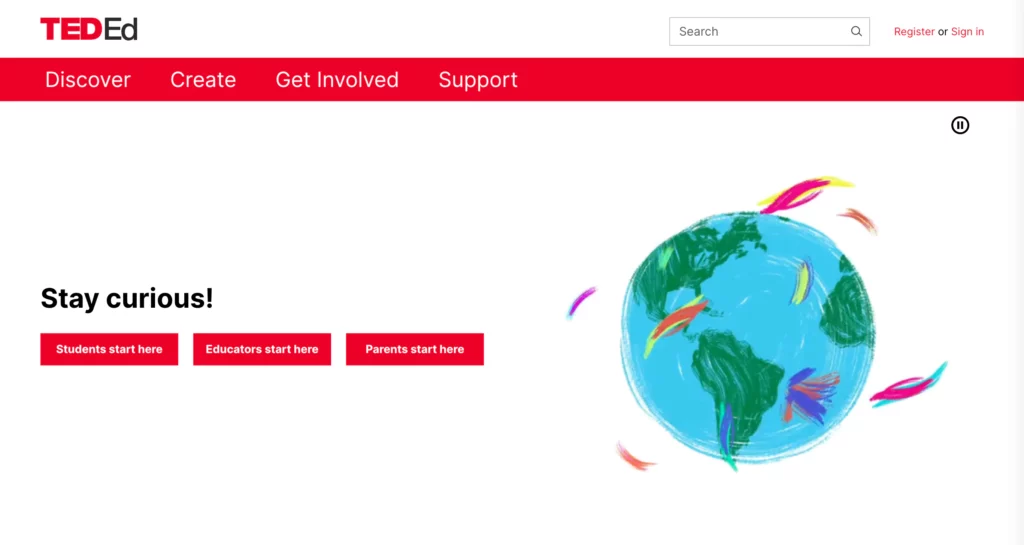
Serving as a renowned educational platform, TED-Ed excels at turning the dullest topics into captivating tales with its animated videos. Its content covers a wealth of topics, from mathematics to social studies. With its stellar production quality and engaging series, TED-Ed is a treasure trove for students seeking deeper insights and educators craving captivating materials for their lessons.
Khan Academy
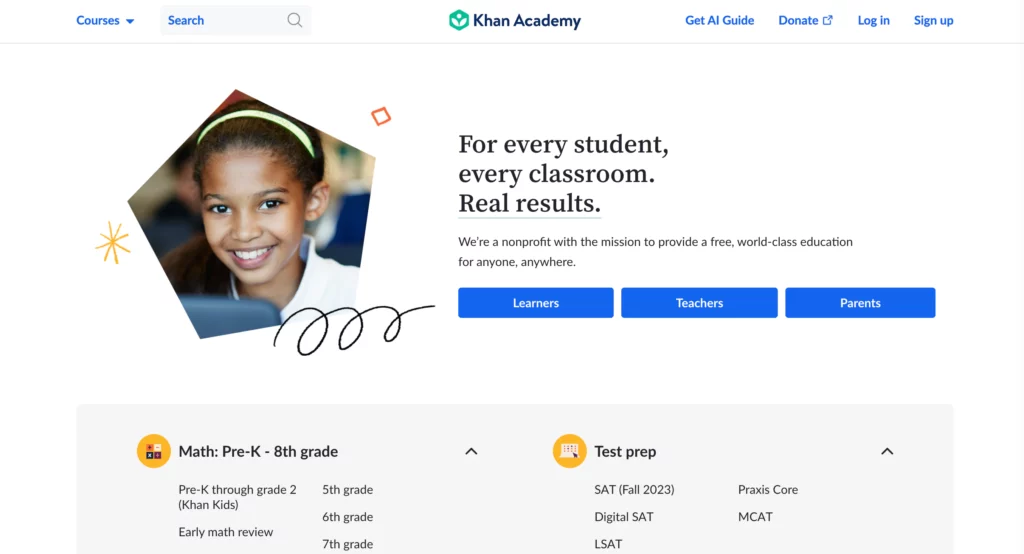
Khan Academy, a free online learning platform, offers invaluable knowledge in academic subjects and life skills. Its lessons, designed to build knowledge from the ground up, are a boon for self-learners and educators alike.
Government Websites
If you’re seeking trustworthy information resources for nation-level issues, don’t miss government websites. These websites provide information and services from or about a government entity, such as a ministry, department, agency, or institution. Government websites may include laws, regulations, policies, statistics, publications, forms, applications, or other features.
Now, let’s take a look at these examples to see how government websites work:
USA.gov
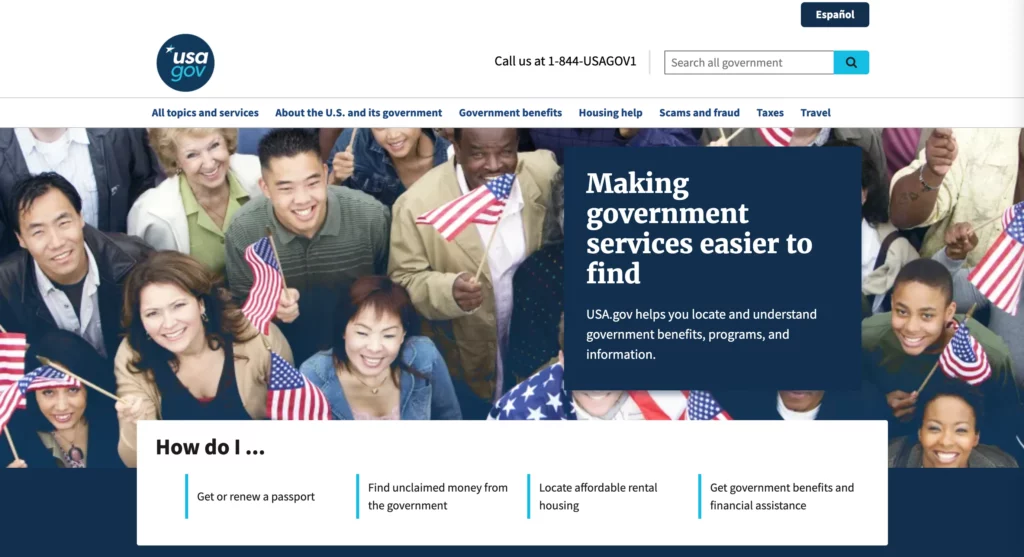
This is a comprehensive website that delivers government information and services in a timely and accurate manner. Navigating topics from education to disability services, USA.gov ensures that vital government resources are at your fingertips, providing convenient access anytime, anywhere.
GOV.UK
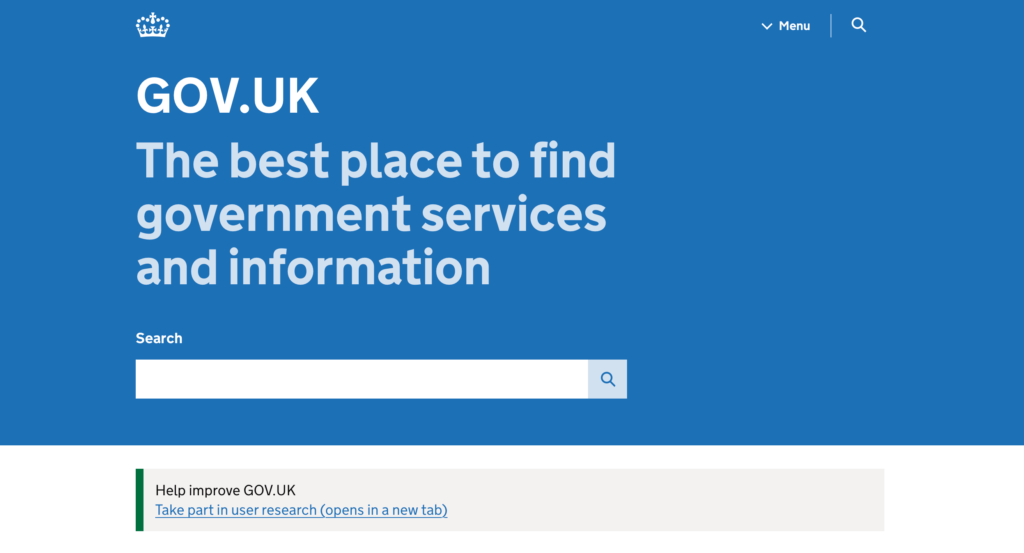
This UK Governance website is your window into the nation’s security and global policies. With real-time updates, GOV.UK keeps you in sync with how the nation responds to global issues through its development, security, defense, and foreign policy priorities.
NGO Websites
Non-governmental organizations usually build information websites to provide information and activities regarding society, environment, or humanitarian. Their main purpose is to raise people’s awareness of existing global or local issues and encourage people to take action through different projects, campaigns, or donations.
Here’re two great examples for reference:
UNICEF
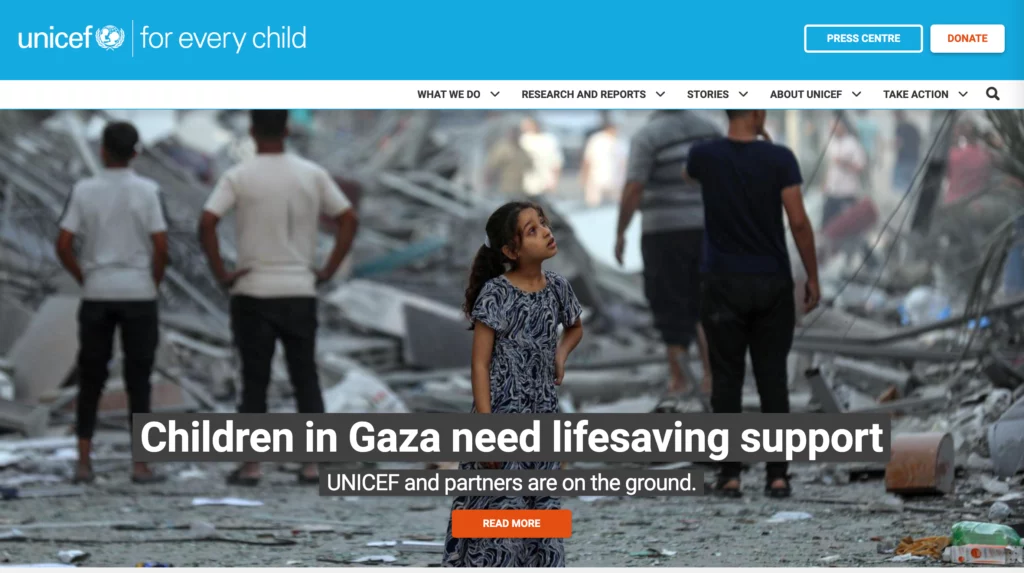
UNICEF’s website highlights its mission and projects which focus on protecting every child’s rights worldwide. It also gives you a detailed insight into the state of the world’s children through annual reports and survey data. Such information helps you envision clearly existing problems faced by children and UNICEF’s actions to mitigate them.
World Wildlife Fund

This NGO’s website is a comprehensive resource that highlights information and news about wildlife conservation, climate crisis, and habitat sustainability. Such information proves helpful because it raises people’s awareness to protect nature and build a habitat in which humans and nature thrive, thereby encouraging individuals and corporations to take action.
Research Databases
These are websites that provide access to scholarly or scientific information, such as journals, articles, books, data, or reports. Research databases usually have a subscription or registration requirement and may offer different search or citation tools.
Below are two typical examples of research databases:
PubMed
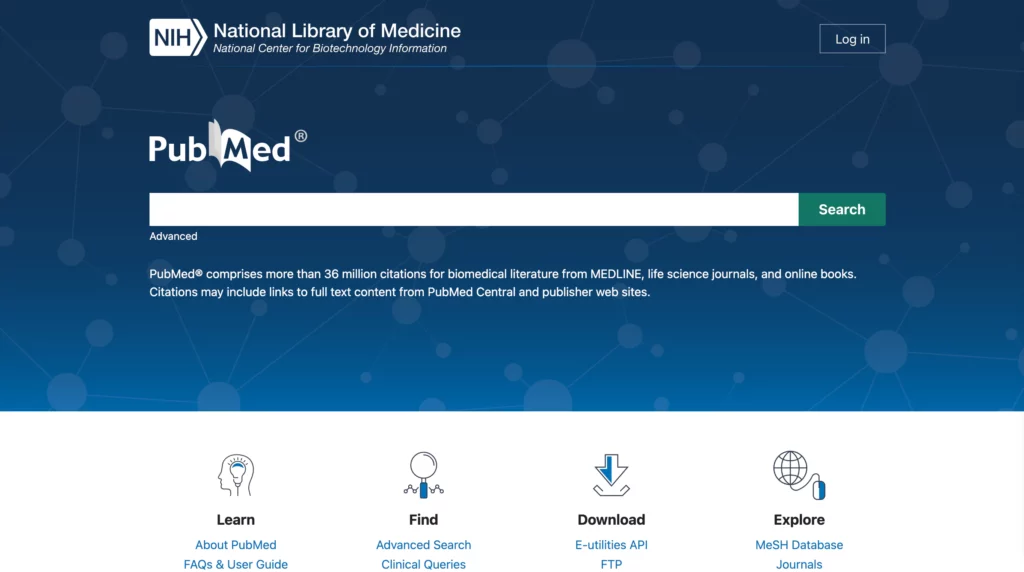
PubMed is the leading database for medicine and biological sciences. It contains more than 35 million records of scientific papers, with abstracts and bibliographic details. As a free database maintained by the National Institutes of Health (NIH), PubMed offers accurate and trustworthy information for research and learning.
Scopus
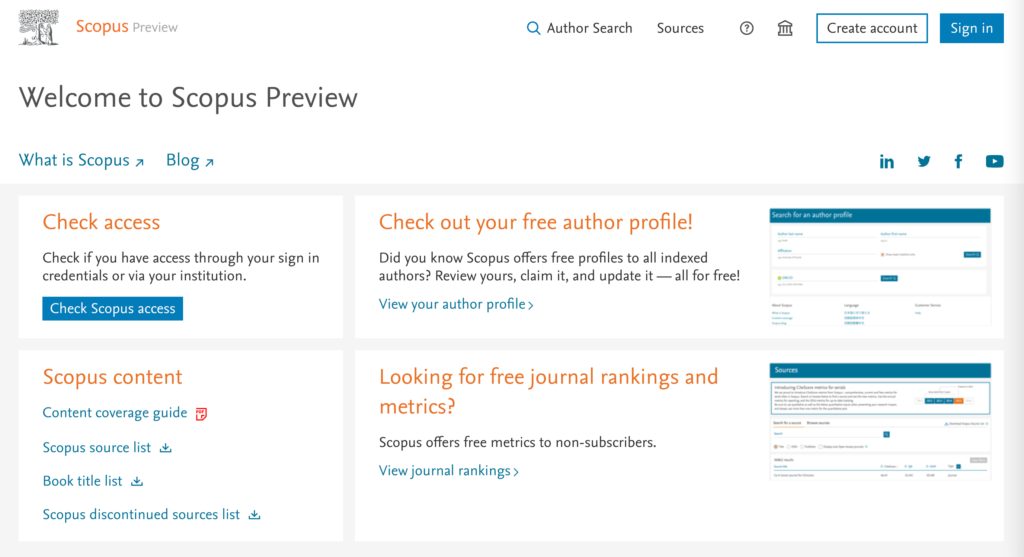
Scopus is one of the largest and most comprehensive databases that cover scholarly literature from almost any discipline. It provides access to more than 90 million core records, including journal articles, conference papers, books, patents, and more. It also offers academic journal rankings, author profiles, and an h-index calculator. Unlike PubMed, Scopus isn’t free for use. It requires an institutional subscription to access its full features.
Portfolio Websites
Portfolio websites are hubs that showcase the work and skills of a person or a group, such as artists, designers, developers, writers, etc. They’re often used to showcase one’s expertise and creativity, as well as attract potential partners or clients.
The examples below are for both individuals and organizations.
Enrico Deiana

If you want to find a unique and engaging portfolio site for individuals, Enrico Deiana is worth a look. Enrico Deiana is a product and web designer. His website features multiple micro-interactions, such as animated text, photos, and buttons, that create a great user experience and showcase his expertise.
Dribbble
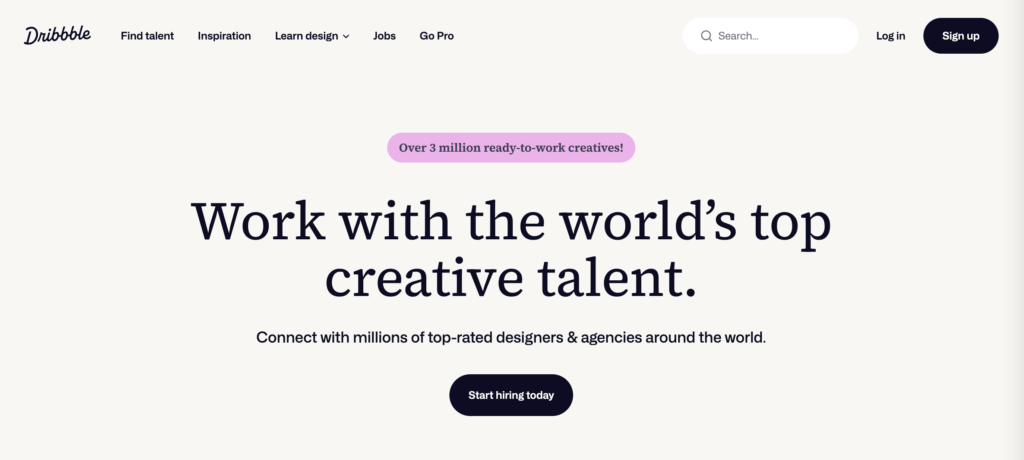
Dribbble is one of the best examples of portfolio websites for designers and creative specialists. It’s a playground where you can demonstrate your work, get feedback, find inspiration, connect with others, and discover opportunities for work.
The Bottom Line
Information websites are crucial tools in our digital age, providing us with reliable and up-to-date knowledge. Despite some misconceptions, these websites are curated by experts and offer valuable insights. From Amnesty International’s human rights updates to PubMed’s biomedical research, each website serves a unique purpose.
This guide equipped you with the fundamentals of information websites, explained some of the best types, and highlighted stunning examples out there. If you find information websites helpful and interesting, let’s begin your web idea with the DSV team now!
